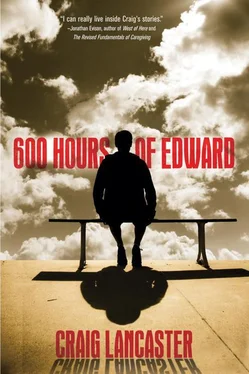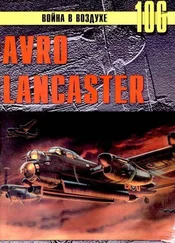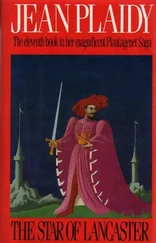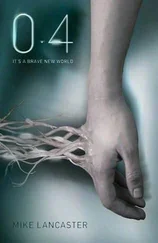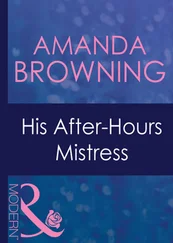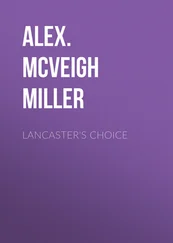“Yes.”
– • –
For nearly an hour, Donna Middleton sits on my love seat and tells me about her therapist, about how she put herself through nursing school after Kyle was born, about how she lived at her parents’ house in Laurel, and about how her mom helped raise Kyle. Kyle’s dad was Donna’s high school boyfriend. They had broken up after graduating from high school, and then they ran into each other at a bar several years later. She tells me about how one night changed everything for her. After she got pregnant, her old boyfriend would have nothing to do with her. That’s when she knew she was going to have to do better for her boy.
“He looks so much like his father, and that is hard sometimes,” Donna Middleton is telling me. “But he’s such a sweet boy, and that’s not like his father at all. He’s the greatest gift of my life.”
– • –
In that same hour, I tell Donna Middleton about my therapy, about my difficulties with my father, about how I came to live in this house. I do not tell her about the online dating, and I cannot explain why except to say that it doesn’t seem right. I do tell her about the letters of complaint. This intrigues her.
“Any letters of complaint to me?” she says.
“Two.”
She arches an eyebrow. “Can I read them?”
“No. They don’t get read, and they don’t get sent. They are a therapeutic tool.”
“Interesting. And you write one of these letters every day?”
“Yes.”
“Don’t you ever run out of things to complain about?”
“Not yet.”
– • –
Donna Middleton bids me good-bye. I open the door for her, and she gathers up the umbrella, opens it, and holds it tight against the wind and rain. I watch her look both ways on Clark Avenue, and then she dashes diagonally across the street and back to her house.
– • –
Tonight’s Dragnet episode is called “The Big Explosion,” the second installment of the first season of the color episodes. It originally aired on January 19, 1967, and it is one of my favorites.
Sergeant Joe Friday and Officer Bill Gannon are investigating the theft of 400 pounds of dynamite from a construction site. Because they are good police officers, they eventually trace the missing dynamite to a white supremacist named Donald Chapman, who borrowed a friend’s car and stole the explosives. A witness saw the license number, which leads to the friend, who leads Sergeant Joe Friday and Officer Bill Gannon to Donald Chapman. You have to be tenacious (I love the word “tenacious”) to be a cop.
This episode is interesting in another way. It is full of actors who went on to be members of the Dragnet ensemble and other Jack Webb projects. Kent McCord, who played Officer Jim Reed in Adam-12 , is in it. So is Bobby Troup, who played Dr. Joe Early on Emergency! and who in real life was also a jazz pianist and married to Jack Webb’s ex-wife Julie London. Don Dubbins plays the white supremacist, Donald Chapman.
Jack Webb saw the benefit of having friends and relying on them. I’m beginning to see that myself.
– • –
Before bed, I prepare another green office folder.
Unnamed motorist who hit me on 24th Street W.:
You made a lot of mistakes today. First, you turned against the light, clipping my 1997 Toyota Camry. Second, you left the scene of an accident without swapping insurance information, and that is a crime.
Why run? The damage is not much—so little, in fact, that I suspect my father will not opt to have it fixed, as the deductible will be charged to him. Had you been responsible about the situation, your insurance would have covered the damage. Now I am having to confront the likelihood of having to drive a dinged-up car. This is not fair to me.
Driving is not a right. It is a privilege. Unfortunately, you left the scene of an accident and will be able to keep driving. I hope that you don’t affect other motorists the way you have affected me.
Finally, I would just like to add that you have confirmed the reason that I prefer right turns to left turns. Left turns, statistically, are more dangerous than right turns, especially on two-way streets, as 24th Street W. is. Had I been making a right turn, our paths would not have crossed, although that would not have mitigated against the fact that you were turning against the light.
Please, for your own sake and the sake of the many drivers who share the road with you, be more mindful of the situations you are in.
Regards, Edward Stanton
I am in the driver’s seat of a car. It’s not my car. It is far bigger—a station wagon, from the looks of the inside. I look to my right, and Joy is sitting in the front seat with me. I reach up and tilt the rearview mirror so I can see behind me. Kyle is in the middle of the backseat, flanked to his left by his mother and to the right by Dr. Buckley. In the far back, in the foldout seats, are my mother and father. I scan every face, and each looks back placidly at me.
I look outside the car, and I see that we are on a bridge—it looks much like the one I have seen in Eastern Montana, on Interstate 94 near Terry, which spans a wide portion of the Yellowstone River. We are not moving.
“Sorry about that, everyone,” I say as I put the car into gear. I nudge the gas, and the car slips off the road into nothingness, an empty space now occupying an area that I am sure held a road just a moment ago.
I look again to my right, and Joy’s face is ashen.
“I’m sorry,” I say.
– • –
My legs kick into the air, my involuntary response to the expectation of certain death. When I don’t hit ground, my eyes open, and I squint as I adjust to the absence of light.
From the nightstand, the green numbers of my digital clock cut through the dark: It’s 5:12 a.m. I take a deep breath as I wait for my heartbeat to slow, and then I turn away from the clock and clutch my spare pillow. I slip away again, this time into dreamless sleep.
– • –
It is 11:51 a.m. when I awake again. My data isn’t ruined—indeed, it has a first-time-ever entry—but my erratic sleep has cut into my day.
In the bathroom, I pee long—and I’m not talking about distance, but rather, time. This is something I do not keep data on. First, it’s gross. Second, my sleep is ordinarily so reliable—in 297 days this year (because it’s a leap year), my wake-up time has been in a four-minute range for 294 of them—that it has other physiological benefits as well. Not to put too fine a point on it, but my bathroom breaks are as predictable as my wake-up times.
In the living room, I peek through the front-window curtain and see what yesterday’s Billings Herald-Gleaner foretold: snow. It’s not much—a medium dusting that will be gone as soon as the temperature gets into the high thirties, I would guess, though I don’t like to guess and will instead just wait and see what the facts bear out—but it’s snow, nonetheless. I can add a round of shoveling to my day.
– • –
Outfitted in snow boots, gloves, a hat, and a warm coat, I trudge out the back door, through the backyard gate, and to the garage, where I retrieve my snow shovel.
When I was in Los Angeles two years ago, I told the desk clerk at the Renaissance Hotel at Hollywood Boulevard and Highland Avenue that I was from Billings, Montana, and he performed a little mock shiver. They say that everyone is an actor in Hollywood.
“I couldn’t live there,” he said. “How do you handle the snow?”
Читать дальше
